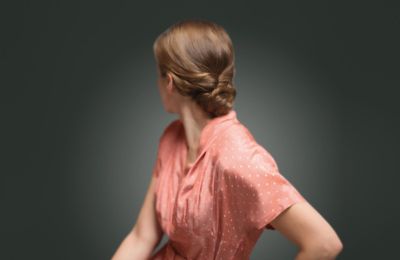“The Scribe” Zofia Posmysz. A witness to history between truth and post-truth

One day when we were coming from the direction of the camp street, I saw the figure of a prisoner hanging from the barbed wire. She had been unable to stand the reality of the camp and committed suicide by clutching the electrified barbed wire. With her hands clinging to the wire, she deliberately posed in a dramatic fashion. It was an appalling sight. Since such situations occurred often, I learnt not to look at them. At night we often heard appalling screams – suicides primarily happened at night – which wrenched us from our sleep. I did not know that a person who got an electric shock could utter such a terrible scream. After we had woken, we knew that someone was hanging from the barbed wire once again. In such a situation I always turned my head away. I preferred to see nothing. Now when I think about it, I consider my reaction was more one of shock than pity, and perhaps even resentment against the person who had disturbed our night’s rest. The first thing I felt was a sense of shock, beneath which was helplessness. I was shocked by my own helplessness people in the camp feared pity because pity demands a reaction. By contrast on several occasions, I saw how people were beaten, beaten till they were unconscious and I was able to do nothing. When you are helpless your instinct for survival demands that you look away. Could I have rushed to help this person and struggle with the murderers? Looking away and refusing to hear were a sort of self-defence. What did I feel at the time? Anger? That too perhaps, but rather helplessness. Anger at my own helplessness perhaps. That’s the way I would describe it.
During this time, it was the end of January 1942, an SS man came into the block looking for new women to work in the kitchen. I ventured to step forward submissively and informed him that I had just recovered from ill health, that I used to work in the kitchen and that for this reason I would like to return there. He agreed. That very day I was taken back into the kitchen block.
Around the middle of 1943 all the SS men in Birkenau were replaced by women in the service of the SS. They came from Ravensbrück to Auschwitz in order to impose order. One of these was a guard whose surname was Franz. She learnt that I could speak German. She looked me up and down and said that [from now on] I would be in charge of the books registering the people who went in and out. I was to work at the end of the kitchen where there was a small table full of account books with drawers. On the next day the guard Franz arrived in the kitchen with a Polish prisoner who was wearing the sign “P” for “political”. She brought him to the table where I was working and explained that this prisoner would teach me how to use the books to register the goings and comings. He told me that his first name was Tadeusz.[1]
My meeting with Tadeusz – and certainly the fact that I survived Auschwitz – is to a great extent thanks to the guard, Franz. Much in the camp was dependent on the individuals one met. For this reason, I looked her up and down carefully the first time she came into the kitchen. She was a rather unobtrusive person, not very big, with dark hair, of average appearance and somewhat plump. She was some years older than me. Right at the start she gave a speech. She announced that the women SS had arrived here in order to turn this mess into an orderly camp like Ravensbrück. Auschwitz was intended to be a model camp. In order to achieve this, it was vital for all the prisoners to cooperate. She added – and I noted this carefully – that that she would never hit anyone because she did not want to dirty her hands. She also said that we would have a peaceful life provided we worked conscientiously. She warned us that any contraventions of the rules would be heavily punished. Sadly, it was impossible to avoid contravening the rules because almost everything we did in the camp was a crime.
[1] Tadeusz Paolone (1909-1943), prisoner in the Auschwitz concentration camp with the number 329, was shot because of his conspiratorial activities in the camp. Zofia Posmysz described her meeting with him in her story Chrystus oświęcimski [The Christ of Auschwitz].














